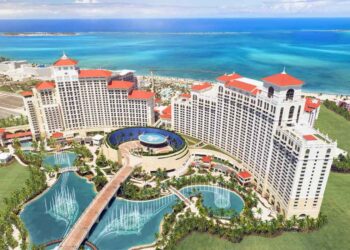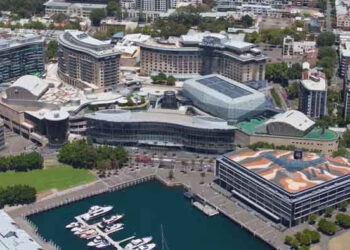Outspoken China bear and short-seller Jim Chanos cannot be sued by Steve Wynn for statements he made earlier this year expressing concerns about possible applications of US anti-bribery laws in Macau.
Mr Wynn’s lawsuit accusing Chanos of defamation was thrown out this week by a federal judge in San Francisco who ruled the remarks were protected speech and not slanderous. Mr Chanos, who heads the well-known US hedge fund Kynikos Associates (Greek for “cynic”), made the comments at an April symposium at the University of California at Berkeley, where he discussed his investment strategy and concerns about how casino operators might run afoul of the US Foreign Corrupt Practices Act.
Macau casino stocks, including Wynn Macau (HKSE: 1128), have taken a beating this year as the city’s world-leading gaming revenues have plummeted in response to a fierce crackdown by the Chinese government and its ruling Communist Party on corruption and capital flight. The alleged illegal flow of money from China through Macau’s casinos and the junkets that control the market’s massive high-roller trade were hot-button topics for Chanos at Berkeley.
Newsweek characterized the views he aired there as “an indictment of the Chinese financial and economic system”.
“Even I got a little nervous the deeper we dug into Macau,” he said. “Although I was long on the US casino operators, like Mr. Adelson and Mr. Wynn, I began to really get concerned about the risk I was taking with clients’ money under the Foreign Corrupt Practices Act.”
Both Las Vegas Sands, headed by Sheldon Adelson (NYSE: LVS), and Mr Wynn’s Wynn Resorts (Nasdaq: WYNN) derive the bulk of their earnings in Macau, and in September, Mr Wynn sued. “Chanos is now a defendant,” he proclaimed at this fall’s Global Gaming Expo in Las Vegas. “I’m not going to let Chanos go. … If you mention the Foreign Corrupt Practices Act in the same sentence as this company, you get a day in court.”
Wynn Resorts’ Macau business has been investigated at various times by authorities in the US and Macau. The timing of a $135 million pledge to the University of Macau—made at a time when the company was seeking approval from the Macau government for the new US$4 billion casino it is developing in the city’s Cotai resort district—was scrutinized in the context of the FCPA, and earlier this year, it was reported that Macau’s Commission Against Corruption was looking into a $50 million payment the company made to third parties to secure the land for the Cotai project. In November, it was reported in The Wall Street Journal that the company had been contacted by two US Attorney’s offices, the Internal Revenue Service and Drug Enforcement Administration seeking information on scores of high rollers in connection with an investigation into money laundering.
None of these probes has resulted in charges to date, and Wynn has never been accused of wrongdoing, a point the company has emphasized repeatedly.
Judge Orrick, however, ruled that Mr Chanos’ remarks are not rendered false by any definitive proof the company didn’t violate the FCPA, according to a Bloomberg report on the ruling. “It takes a significant inferential leap to conclude that Chanos’ general uncertainty about the questionable business methods in Macau equates to an assertion that Wynn violated the FCPA,” he said.
Mr Chanos, a consistent critic of China’s economy, blasted the Macau casino industry at the Berkeley symposium as a “legalized fraud”. And he didn’t stop there. Referring to the industry’s explosive growth in tandem with declining property and currency values on the mainland, he added—with apparent prescience in light of the anti-corruption drive orchestrated by Chinese President and Communist Party chief Xi Jinping—“We’re looking at the Macau situation as a wholesale conduit for capital flight out of China, which has implications for the banking sector and the credit system.”
Wynn has until 13th January to revise and refile its lawsuit, according to Bloomberg. “We intend to take advantage of that opportunity,” a spokesman for the company said.





























